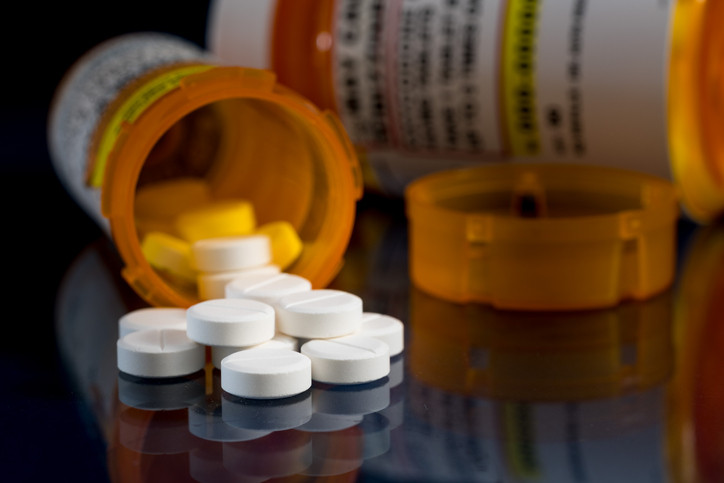
What are somatic workouts?

How to curb your stress eating

How to spot Parkinson’s disease symptoms

8 simple ways to reduce ultra-processed foods in your diet

Heart failure symptoms in women: How they’re different

GERD diet: Foods to avoid to reduce acid reflux

Strong is the new skinny

Everyday habits that sneakily weaken your bones

Don’t wait to get help for back pain

Correcting how you walk may ease osteoarthritis knee pain
HHP Medication Safety Watch: October 2020

This list contains selected items from the full FDA list of recalls, withdrawals, and alerts for medicines and certain health products. We've provided links to FDA information for each product and its maker. Unless otherwise noted, these actions apply only to the specific brand name of the product listed. Talk to your healthcare provider before stopping or changing any medicines or treatments that they have recommended for you.
Over-the-counter products and medicines
Skin salves or creams may cause damage to skin and deeper tissues
-
Black Salve and similar products that go by many names, including red salve, bloodroot, Hawk Dok Natural Salve, Black Drawing Ointment (maker: multiple makers, see here for a more complete list of products and makers)
Comment: The FDA is advising consumers to not use this product, or similar products that go by other names, which are sold as treatments for skin cancer, moles, or other skin problems. Some have been found to contain ingredients that may cause serious damage to the skin and deeper tissues, resulting in scars, permanent disfigurement, and even death. In addition, use of these products may delay appropriate treatment for skin cancer or precancerous moles. Avoid using any product that lists the ingredients sanguinarine, Sanguinaria canadensis, or bloodroot.
Hand sanitizer packaging resembles food or drink pouches
- Smart Care Hand Sanitizer (maker: Ashtel Studios)
Comment: Packaging a hand sanitizer in a container that resembles a food or drink pouch could encourage children and adults to mistakenly eat or drink it. Such packaging may also encourage people with alcohol addiction to drink it. Drinking a product that contains alcohol can lead to alcohol toxicity with symptoms of poor coordination, slurred speech, drowsiness, a drop in blood sugar, coma, or death. Drinking alcohol during pregnancy may cause birth defects or developmental disabilities.
See additional FDA recalls and alerts for more than 200 hand sanitizer products in recent months due to methanol contamination, inappropriate labeling, or other issues.
Oral rinse may have bacterial contamination
- Paroex Chlorhexidine Gluconate Oral Rinse, 4 oz and 16 oz (maker: Sunstar Americas, Inc.)
Comment: Some batches of this product may be contaminated with a bacterium called Burkholderia lata. Using the rinse could cause serious or even life-threatening infections (such as pneumonia), especially among those with a suppressed immune system. This oral rinse is used to treat gum inflammation (gingivitis).
Over-the-counter and prescription nonsteroidal anti-inflammatory drugs (NSAIDs) taken during the last half of pregnancy may harm fetus (see below, under Prescription Medicines).
Prescription medicines
Metformin may be contaminated with a compound that may cause cancer
- Metformin Hydrochloride, Extended-Release tablets, 500 mg and 750 mg (maker: Marksans Pharma Limited)
Comment: Metformin is prescribed for type 2 diabetes. Some lots of this medicine contained a higher than acceptable level of N-Nitrosodimethylamine (NDMA), a known carcinogen (a compound that may cause cancer).
In recent months, the FDA has issued recalls regarding more than 170 products containing metformin. See this link for the full list.
Nonsteroidal anti-inflammatory drugs (NSAIDs) taken during the last half of pregnancy may harm fetus
- NSAIDs, such as ibuprofen or naproxen (maker: multiple makers and products, see this link)
Comment: A new FDA warning label recommends avoiding over-the-counter or prescription NSAIDs during the second half (final 20 weeks) of pregnancy. Rarely, these drugs may cause kidney disease in the developing fetus. Fetal kidneys produce most of the amniotic fluid that surrounds the fetus, providing nourishment and protection. NSAID use may result in low amniotic fluid, leading to limb abnormalities and a delay in lung development. If NSAID treatment for more than 48 hours is considered necessary during the second half of pregnancy, these new warnings suggest close monitoring of amniotic fluid, possibly including ultrasound testing.
Previous FDA warnings regarding NSAID use during pregnancy applied to the final trimester of pregnancy (weeks 28 to 40), when NSAID use may cause a dangerous change in the circulation of the developing fetus or complications during birth.
Of note, low-dose aspirin is excluded from these recommendations. For fever or pain relief during pregnancy, talk to your doctor about using acetaminophen. As always, pregnant women should avoid taking any unnecessary medications, and should check with their doctors before starting a new medication.
Read additional issues of HHP Medication Safety Watch
Disclaimer:
As a service to our readers, Harvard Health Publishing provides access to our library of archived content. Please note the date of last review or update on all articles.
No content on this site, regardless of date, should ever be used as a substitute for direct medical advice from your doctor or other qualified clinician.

What are somatic workouts?

How to curb your stress eating

How to spot Parkinson’s disease symptoms

8 simple ways to reduce ultra-processed foods in your diet

Heart failure symptoms in women: How they’re different

GERD diet: Foods to avoid to reduce acid reflux

Strong is the new skinny

Everyday habits that sneakily weaken your bones

Don’t wait to get help for back pain

Correcting how you walk may ease osteoarthritis knee pain
Free Healthbeat Signup
Get the latest in health news delivered to your inbox!
Sign Up

